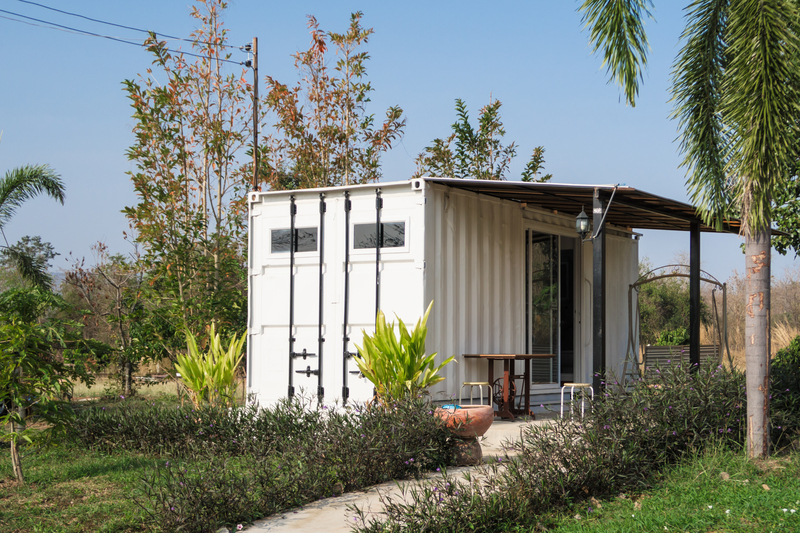Stay Safe and Eco-Conscious with Proper PPE Disposal
The rise in personal protective equipment (PPE) usage across the globe has led to significant concerns about safety, environmental health, and sustainability. As individuals, businesses, and communities strive to protect themselves from viruses and pathogens, the importance of proper PPE disposal has never been more relevant. In this guide, you'll discover the critical role that picking up, handling, and discarding PPE responsibly plays in both safeguarding human health and protecting our planet. Ready to learn how you can stay safe and eco-conscious? Read on to find out all you need to know about correct PPE waste management!

The Importance of Safe PPE Waste Management
Why Has PPE Usage Increased?
With the outbreak of the COVID-19 pandemic, society witnessed a massive surge in the use of masks, gloves, face shields, and gowns. These barriers, once limited to healthcare settings, quickly became a daily necessity for the broader population. While PPE played a vital role in curbing the spread of the virus, it has inadvertently contributed to a new challenge: PPE waste pollution.
- Billions of single-use masks and gloves are discarded globally every month.
- Most PPE contains plastics or synthetic fibers that can linger in the environment for hundreds of years.
- Improper PPE disposal can endanger wildlife, contaminate water sources, and pose hazards to public health workers and waste handlers.
Risks of Improper PPE Disposal
When we fail to dispose of PPE correctly, we not only jeopardize the health of sanitation workers and the public but also harm delicate ecosystems. Here's how:
- Health Risks: Used PPE may carry infectious agents, increasing risk of transmission if handled improperly.
- Environmental Pollution: Non-biodegradable materials such as polypropylene in surgical masks and gloves can break down into microplastics, contaminating soil and waterways.
- Wildlife Danger: Animals can become entangled in discarded PPE, or mistakenly ingest these items, often with fatal consequences.
- Clogged Infrastructure: Littered PPE items can block drains, causing urban flooding and urban infrastructure damage.
Guidelines for Responsible PPE Disposal
Step-by-Step PPE Waste Management
Properly disposing of PPE waste safely and sustainably is everyone's responsibility. Follow these essential steps:
- Remove PPE Safely: Always wash your hands or use hand sanitizer before and after removing PPE. Avoid touching the front surfaces, and use the straps to take it off. This minimizes your exposure to contaminants.
- Bag Used PPE: Place used masks, gloves, and other single-use items in a secure, leak-proof plastic bag. Tie the bag tightly to prevent spillage or accidental exposure.
- Dispose in Designated Bins: Do not throw PPE into recyclable bins. Use covered trash bins labeled for general waste. Some communities offer specific "PPE waste" bins--utilize them where available.
- Do Not Litter: Never leave PPE discarded on streets, parks, or nature reserves. This prevents environmental pollution and reduces harm to wildlife.
- Wash Hands Thoroughly: Always wash your hands for at least 20 seconds with soap and water after disposing of PPE to minimize any exposure risk.
Special Considerations for Medical and Quarantine Waste
If you are caring for someone who is sick, or if PPE has been used in a medical or high-risk context, the disposal guidelines are stricter:
- Double-bag the waste and store it separately for at least 72 hours before putting it out for collection.
- Clearly mark the bags if required by your local waste service, so sanitation workers are aware of potential biohazards.
PPE Waste and Environmental Impact
What Happens to PPE After Disposal?
Many people assume that once PPE is discarded, the problem is solved. In reality, the journey has just begun. Most disposable PPE items are made from non-recyclable plastics that persist in the environment for centuries. When sent to landfills, these materials may never decompose. Worse yet, some make their way into rivers and oceans, fueling the global plastic pollution crisis.
- Over 1.5 billion face masks entered the oceans in 2020 alone.
- Breakdown of PPE leads to microplastics, which enter the food chain and can impact human health.
- Burning PPE in incinerators releases toxic chemicals if not done under strict controls.
How to Make Your PPE Disposal Eco-Friendly
While single-use PPE has clear health benefits, it's crucial to reduce its impact on the planet:
- Opt for Reusable PPE: Whenever possible, use high-quality washable masks or reusable face shields. Clean them thoroughly after each use according to manufacturer's guidelines.
- Support PPE Recycling Programs: Some companies and non-profits are innovating recycling strategies for used PPE--such as specialized mask recycling bins found in supermarkets, offices, or public spaces. Participate and encourage others to do the same.
- Encourage Biodegradable Alternatives: Look for compostable or biodegradable PPE options made from materials like bamboo fibers or plant starches. These will decompose much faster than traditional plastic-based products.
- Educate and Advocate: Share your knowledge about sustainable PPE usage and disposal with your community. The more people take action, the greater the positive environmental impact.
The Role of Businesses and Organizations in PPE Disposal
Corporate Responsibility in PPE Waste Collection
Large organizations and businesses generate significant volumes of PPE waste. Adopting responsible PPE waste disposal practices not only demonstrates corporate responsibility but also improves workplace safety and public trust.
- Install clearly marked PPE disposal bins at entrances, exits, and key locations.
- Provide PPE recycling boxes if available through local partnerships or commercial services.
- Regularly train employees on correct PPE handling and waste separation.
- Work with certified waste management companies for collection, recycling, or safe incineration.
Compliance and Regulations
Many countries are introducing new regulations on PPE waste management. Businesses should proactively stay updated and compliant, ensuring that they:
- Follow occupational health and safety standards.
- Practice traceability for hazardous or infectious waste streams.
- Report waste quantities and disposal methods as per legal requirements.
Innovations in PPE Waste Recycling
Emerging Technologies for a Greener Tomorrow
Global awareness of PPE pollution has driven companies and researchers to develop creative recycling and repurposing methods:
- Specialized PPE Recycling Plants: Innovative facilities use high-heat processes to break down masks and gloves, transforming them into building materials, fuel, or new plastics.
- Upcycling Projects: Some organizations turn used PPE into benches, tiles, or even roads, reducing demand for virgin plastic.
- Biodegradable PPE Research: Development of masks and gloves made from rapidly decomposing materials that leave a much lighter environmental footprint.
How Individuals Can Make a Difference
Simple Ways to Practice Safe and Eco-Conscious PPE Disposal
It's easy to feel powerless in the face of a global waste crisis. But small steps can have a big cumulative impact. Start today with these habits:
- Carry Your Own Waste Bag: If you're out in public, keep a small sealable bag for used PPE until you find a proper bin.
- Reuse When Possible: Choose washable fabric masks and sanitize them regularly to cut down on waste.
- Pick Up Litter: Don't ignore discarded masks or gloves you find outdoors. Wear gloves to pick them up and dispose of them responsibly.
- Educate Children: Teach young family members about the dangers of littering PPE and the steps they can take to help.
Community Initiatives
Get involved in or initiate local campaigns to clean up PPE litter, promote sustainable options, and provide education. Neighborhood cleanup days or PPE recycling drives can mobilize significant community effort and create lasting change.
Conclusion: Make PPE Disposal Part of Your Eco-Conscious Routine
The responsibility to dispose of PPE properly is a critical element of both public health and environmental stewardship. By following guidelines, choosing sustainable alternatives, and fostering responsible habits at home and at work, each of us can stay safe and eco-conscious with PPE disposal.
- Always dispose of PPE in the correct bins--never recycle contaminated items with ordinary recyclables.
- Advocate for greener, healthier alternatives in your community, workplace, or school.
- Remember, a single discarded glove or mask might not seem like much, but multiplied by billions, the impact is massive. Let's work together for a cleaner, safer world!

Frequently Asked Questions on PPE Waste Disposal
Can Disposable Masks Be Recycled?
Most disposable masks and gloves are made from mixed materials that can't be handled by standard recycling facilities. Specialized PPE recycling programs are emerging, but for now, place used PPE in general waste unless a dedicated PPE recycling program is available in your region.
Should I Wash PPE Before Disposal?
No. PPE that is designed for single use should not be washed. Washing can make some contaminants airborne. Instead, carefully remove and bag disposable PPE without attempting to clean it.
How Do I Dispose of PPE Used Around Someone Who is Sick?
Double-bag the items and let them sit aside for at least 72 hours. Check your local regulations--some areas have special collection procedures for potentially infectious waste.
What About Cloth Masks?
Cloth masks are a sustainable choice! Wash them regularly using hot water and dispose of them as textile waste when they wear out.
What Should I Do with Nitrile or Vinyl Gloves?
Gloves should be disposed of in general waste bins, unless your community provides a glove recycling program.
Your Actions Matter! Practice Proper PPE Disposal for a Safer, Greener Future
Remember, proper PPE disposal protects not just you, but your community and the environment too. Make it a part of your daily safety and sustainability routine. By staying informed and mindful, you can help reduce pollution and support public health--all while staying safe and eco-conscious every day!
